At Trinity Logistics, we’ve always believed in doing the right thing. That concept is foundational and woven into the fabric of our company culture, from the services we provide to the impact we aim to make on the world around us. Being sustainable is an important focus for the company. It’s a responsibility we take seriously, so our sustainability initiatives are no afterthought.
Logistics Environmental Sustainability
The United Nations defines sustainability as “meeting the needs of the present without compromising the ability of future generations to meet their own needs.”
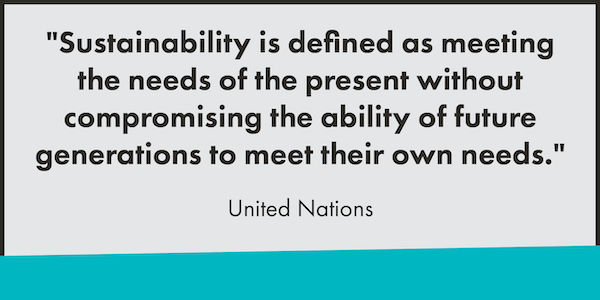
Our company takes that message to heart. We recognize the critical part we play in taking care of our communities, making a positive impact, and reducing our environmental footprint. We want to leave a positive legacy behind that extends beyond our logistics services. This includes our part in taking care of our environment and the communities we touch.
Here’s a glimpse into how we take action to be sustainable.
Paving the Way to Less Emissions with SmartWay
The SmartWay program by the Environmental Protection Agency (EPA) helps companies improve supply chain sustainability and reduce transportation emissions by providing a system to track fuel and emissions so companies can select more efficient carriers and logistics strategies.

Trinity invested in a SmartWay partnership in 2008, making this our earliest sustainability initiative. This partnership enables us to access and build relationships with SmartWay-certified carriers that commit to tracking and minimizing their emissions. We’re able to leverage that network, empowering our shipper relationships to make sustainable choices by using these SmartWay-certified carriers whenever possible.
Chemical Safety with Responsible CareⓇ
Responsible CareⓇ is the chemical industry’s environmental, health, safety, and security initiative, hosted by the American Chemical Council.
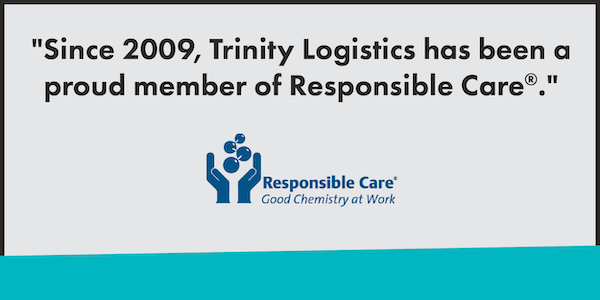
Since 2009, Trinity has been a proud member of Responsible CareⓇ. Some of the ways we take this sustainability initiative into action include;
- carrying pollution liability coverage to cover costs associated with pollution clean-up or other pollution-related liability claims;
- stringent carrier vetting to select the right carrier with the right requirements, like being hazmat-certified;
- ongoing required Team Member training to maintain knowledge of proper procedures, especially regarding chemical transportation.
Offsetting Carbon Footprint in Logistics with ClimeCo
ClimeCo is a non-profit organization that helps companies offset their emissions by donating funds towards sustainable projects.
Trinity Logistics understands that climate change is a pressing issue, so we’re committed to doing our part. In 2022, we began collaborating with Carbonfund, now known as ClimeCo. At the end of each fiscal year, we calculate the electricity usage of our owned facilities. With that calculation, ClimeCo helps us identify sustainable projects to donate to and offset the emissions we produced that year.
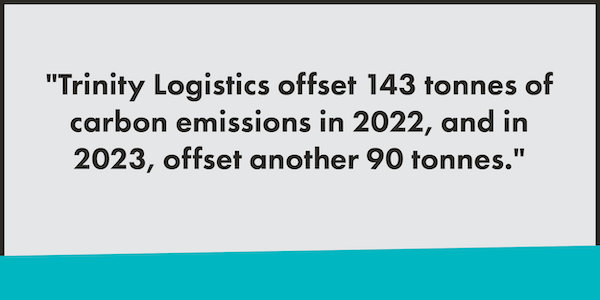
We’ve already made a difference by contributing to the Texas Capricorn Ridge Wind Project and N20 Abatement Project. In 2022 alone, we offset 143 tonnes of carbon emissions, and in 2023, we mitigated another offset of 90 tonnes. That’s a win for the environment and a win for future generations.
Building Sustainability in Our Offices
Sustainability isn’t only about grand gestures; it’s about the everyday choices we make. That’s why we seek out sustainable practices within our own facilities.
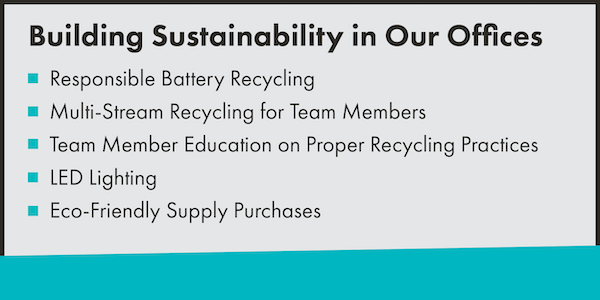
We offer convenient battery recycling through a partnered vendor, ensuring they’re disposed of responsibly. We also ensure any used paint gets recycled instead of ending up in landfills.
We offer multi-stream recycling to our Team Members as well. Each Team Member has their own container to recycle any paper documents, while a large bin outside collects glass and recyclable plastics. Knowledge is power, so we educate our Team Members on proper recycling practices, too.
Our Facilities Team also aims to make sustainable purchases as often as possible. They’ve already converted any lighting in our owned offices to energy-efficient LEDs. They also focus on purchasing eco-friendly supplies that are compostable and certified sustainable. For example, they buy compostable paper plates and takeout containers for our weekly lunches.
Recognizing the Power of Remote Work for A Cleaner Environment
We recognize the many benefits of remote work. It fosters a vibrant company culture, empowers our Team Members with greater flexibility, and contributes to a greener future. By embracing remote and hybrid work positions, we help reduce emissions from daily commutes and cut our office space requirements.
Currently, around 50 percent of our positions offer remote or hybrid options, allowing our Team Members to focus on time with their families, contribute to their communities, and be part of this impactful sustainability initiative.

Empowering Shippers with Sustainability
For Trinity, sustainability is about more than our own initiatives. It’s also about helping our relationships find sustainable options in their supply chains.
For each shipment, we’re able to offer guidance on the most efficient transportation modes available. We offer regular business reviews to analyze our shipper relationship’s unique logistics profiles to find and suggest efficiencies. Our Team also works closely with shippers and carriers to tackle deadheading, a large contributor to carbon in the trucking industry.
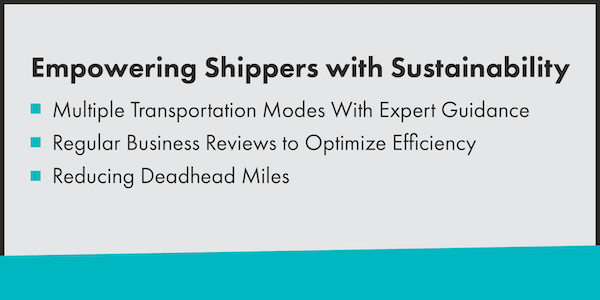
Additionally, we’re always looking to explore new ways to push the sustainability envelope for our relationships. Currently, we’re looking into platforms that can help us provide our shipper relationships an extra avenue to offset their carbon emissions, too, like Patch.io.
Ecovadis – Recognition of Trinity’s Commitment to Sustainability
EcoVadis, a trusted and globally recognized provider of business sustainability ratings, recognizes our dedication. In 2023, they awarded us a bronze medal, placing us within the top 50 percent of companies assessed. While we acknowledge this is a significant achievement, at Trinity, we aim to continuously improve. Our sights are set on achieving a silver rating in 2024, reflecting our ongoing commitment to continuous improvement.
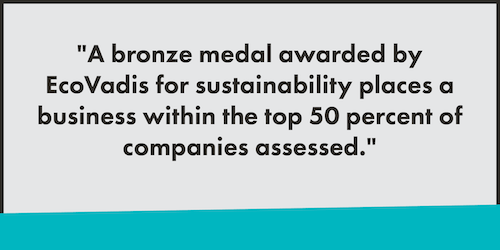
The Trinity Logistics Difference
As our mission statement says, we’re dedicated to “improving lives and supply chains by solving tough problems.” Sustainability is undeniably a complicated challenge. The good news is that our passionate Team Members at Trinity Logistics thrive on tackling tough problems and overcoming obstacles. We’re relentless in our pursuit of solutions, and we won’t stop until we’re satisfied with the results.
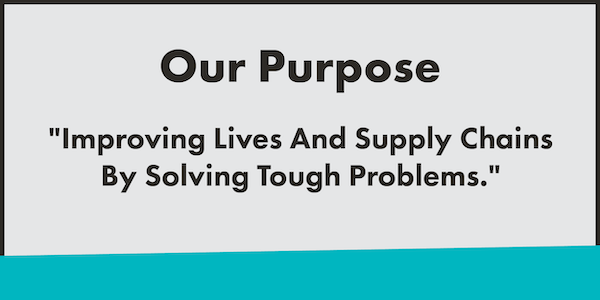
We understand sustainability is a never-ending journey of improvement. That’s why you can count on Trinity Logistics to remain a leader in sustainable practices. We’re constantly expanding our sustainability initiatives and deepening our commitment to a greener future.
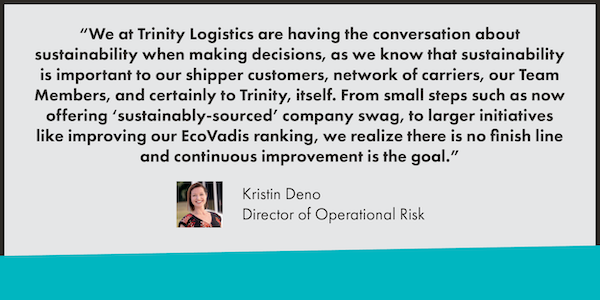
Our dedication to sustainability is just one facet of the Trinity difference. If this is how seriously we take environmental responsibility, imagine the level of commitment we bring to solving your logistics challenges.
DISCOVER HOW WE CAN HELP YOU ACHIEVE YOUR LOGISTICS GOALSGuest Author: Betty White
Environmental concerns are likely on everyone’s mind. Addressing global warming and reducing one’s carbon footprint are now primary concerns for many industries. The logistics industry, in particular, has a unique position in this context.
A brief word on the environment
Before delving deeper into the subject at hand, it is vital that we briefly touch on the current and estimated effects of emissions on the environment. It’s no secret that technological advancements often come at a cost. On the front of expanding industries and supply chains, fossil fuels’ predominant role correlates to greenhouse gas (GHG) emissions. Industrialization has caused the global average temperature to rise by almost 2°F since 1880, according to NASA.
Likewise, NOAA scientists have observed similar findings in the earth’s atmosphere. They recently detected the highest concentration since their records began in 1958. Scientists and researchers estimate that the average global temperature will increase by another 2.7°F before 2100, with worst-case scenarios suggesting an increase of almost 8°F.
Reducing one’s carbon footprint may not just a noble goal, but an essential one. That does not mean one should not continue to improve logistics, but only that one should entertain greener ideas on how to do so.
Reducing the carbon footprint of the logistics sector
As logistics are an integral part of supply chains, they affect the global distribution of goods. E-commerce is increasing and customers have higher standards in terms of delivery speed. Yet, it is becoming clear that quick expansion is not sustainable, and each product’s carbon footprint needs to be reduced. Global regulations, such as those issued by the International Maritime Association (IMO), aim to do so.
Reducing carbon footprint in logistics is not without benefits. Many companies report savings after adopting greener courses of action. A commitment to sustainability also raises goodwill with your investors and stakeholders.
#1 Selecting greener suppliers
Selecting greener suppliers should be the first step towards reducing carbon footprint in logistics. The choice of raw materials on suppliers’ end often hinges on material viability towards the end product. It also affects the environment. Extracting and processing raw materials can have massively different carbon footprints. It depends on the materials and processes in question. Their energy consumption, waste, and emissions will vary, and it’s in your best interest to keep track of environmental metrics alongside performance.
#2 Centralizing supply networks
Global supply chains involve big supply networks, which need air or ocean transportation. Such means of transport can largely contribute to GHG emissions. Consolidating your supply networks across shorter distances can be one way to reduce your chain’s carbon footprint.
#3 Choosing greener means of transportation
It is vital to note that some means of transportation are less environmentally friendly than others. For example, ocean transportation is a notable contributor to global sulfur emissions. Or road transportation, which produces more emissions than rail transportation. Switching to greener means of transport across your supply chain can help reduce your carbon footprint.
#4 Optimizing energy consumption and waste production
It is a must to speak to energy consumption and waste production. One consumes energy and produces waste across all stages of a supply chain. From the refinement of raw materials to your warehouse management, you can strive to reduce both. Consider the following examples:
- Individual employee energy consumption
- Truck and forklift usage
- Handling and packaging
- Paperwork
To address the above, you might take individual measures. You may train employees to consume energy more efficiently, such as minimizing forklift use when possible. You can reduce double handling, reduce packaging, or recycle more. Finally, you can try to minimize paperwork and produce less waste.
#5 Recycle, reuse, repair
The measures we can take as individuals to reduce carbon footprint also apply across industries and supply chains. Especially given the recent effects of COVID-19, it may be time to consider greener practices as we recover and restructure operations.
Consider the following industry-specific examples:
The moving industry produces some GHG emissions by definition. In these challenging times, moving businesses are all too eager to see you get all the help you need with relocation. They also turn to greener practices as they restructure; from warehouse management practices to recycling packages.
Similarly, the cell phone industry sees many phones damaged within the first few weeks of purchase. As such, some businesses now provide incentives to recycle old devices, reduce the cost of repairs, or expand warranties. Some such changes may be harder to incorporate into one’s logistics operations, but they yield the benefits mentioned above. Depending on your industry’s unique needs, you may strive to strengthen your reverse logistics and repair operations and intensify your recycling efforts.
Conclusion
In light of the statistics mentioned above, it seems highly unlikely that we can afford to continue down a “business-as-usual” path. International laws and regulations continue to strive for greener alternatives as well, making the change to a more environmentally conscious business landscape a potential legal imperative, not merely an ethical one. However, this article hopefully demonstrated that future-proofing in this regard is both a viable and a potentially lucrative endeavor, in logistics or otherwise.
Looking for a provider that can help you find ways to reduce your carbon footprint in logistics?
Request a Quote